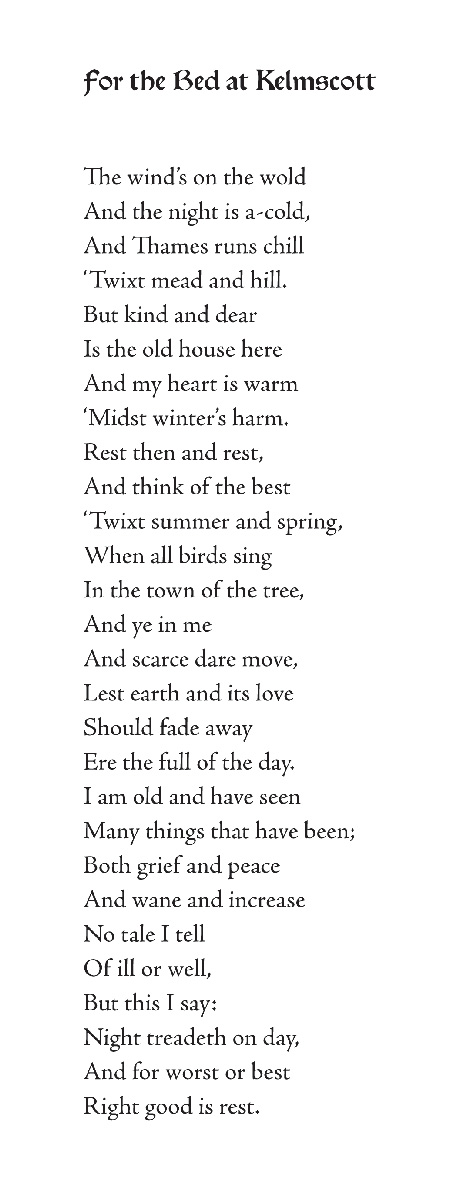William Morris
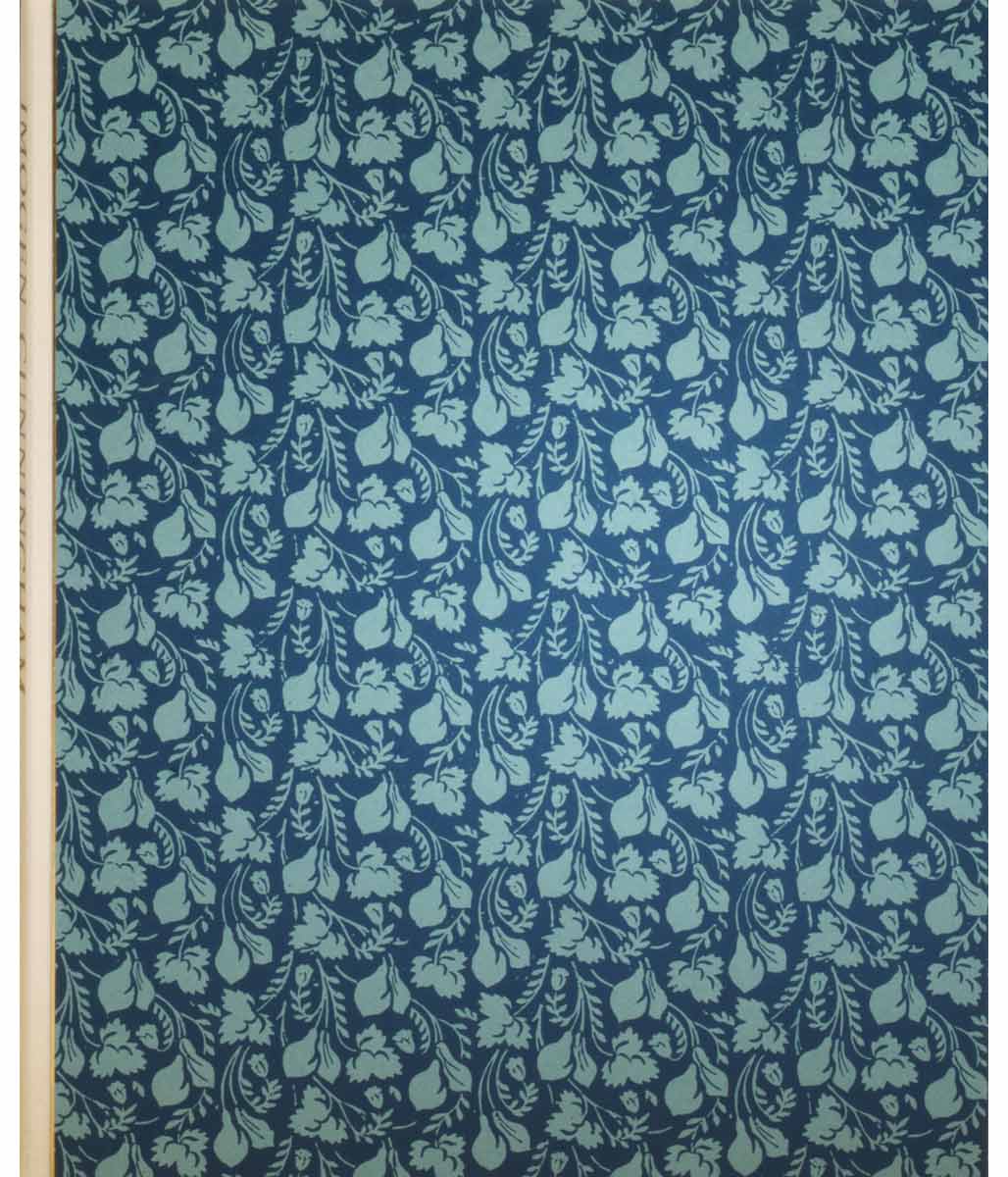
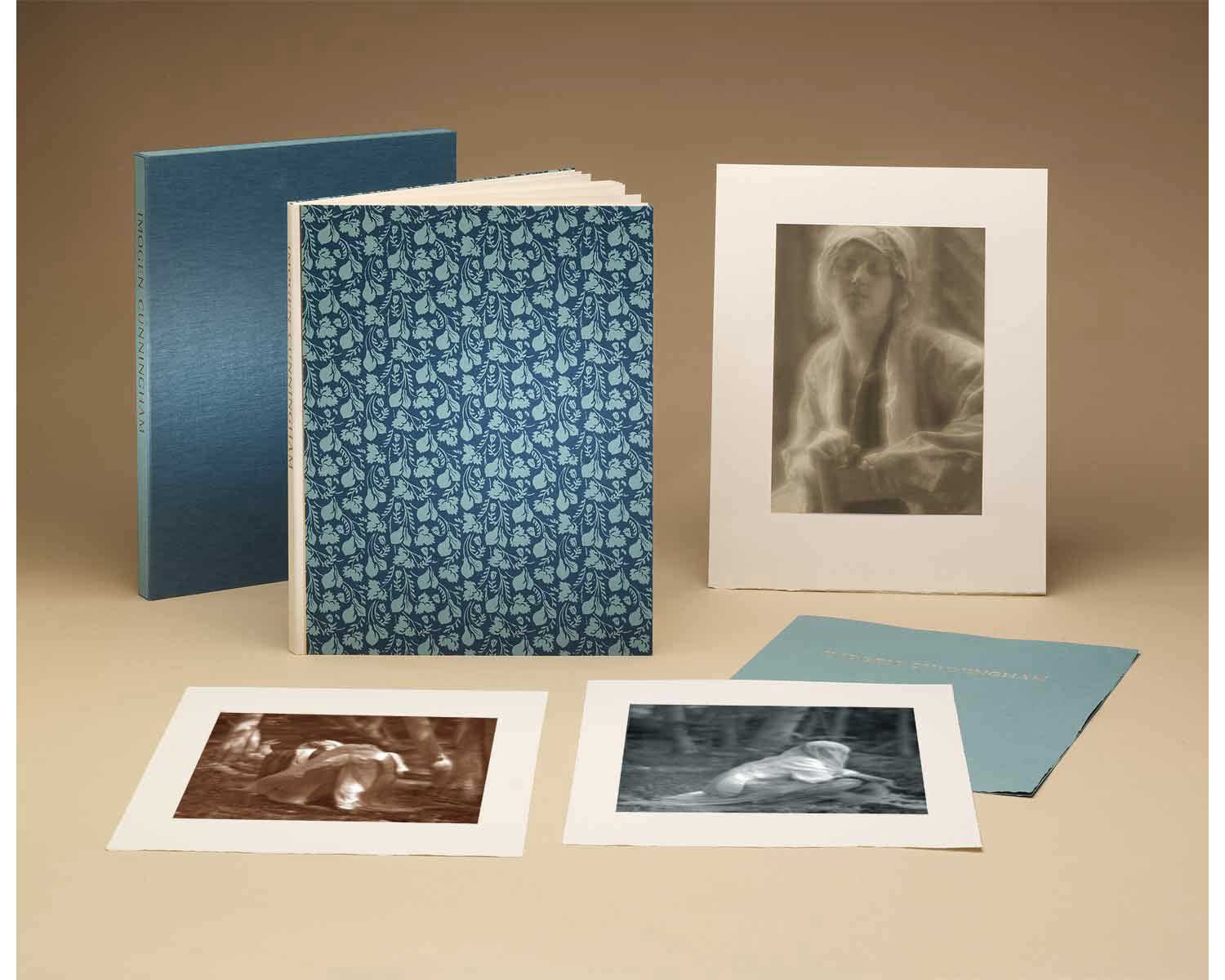

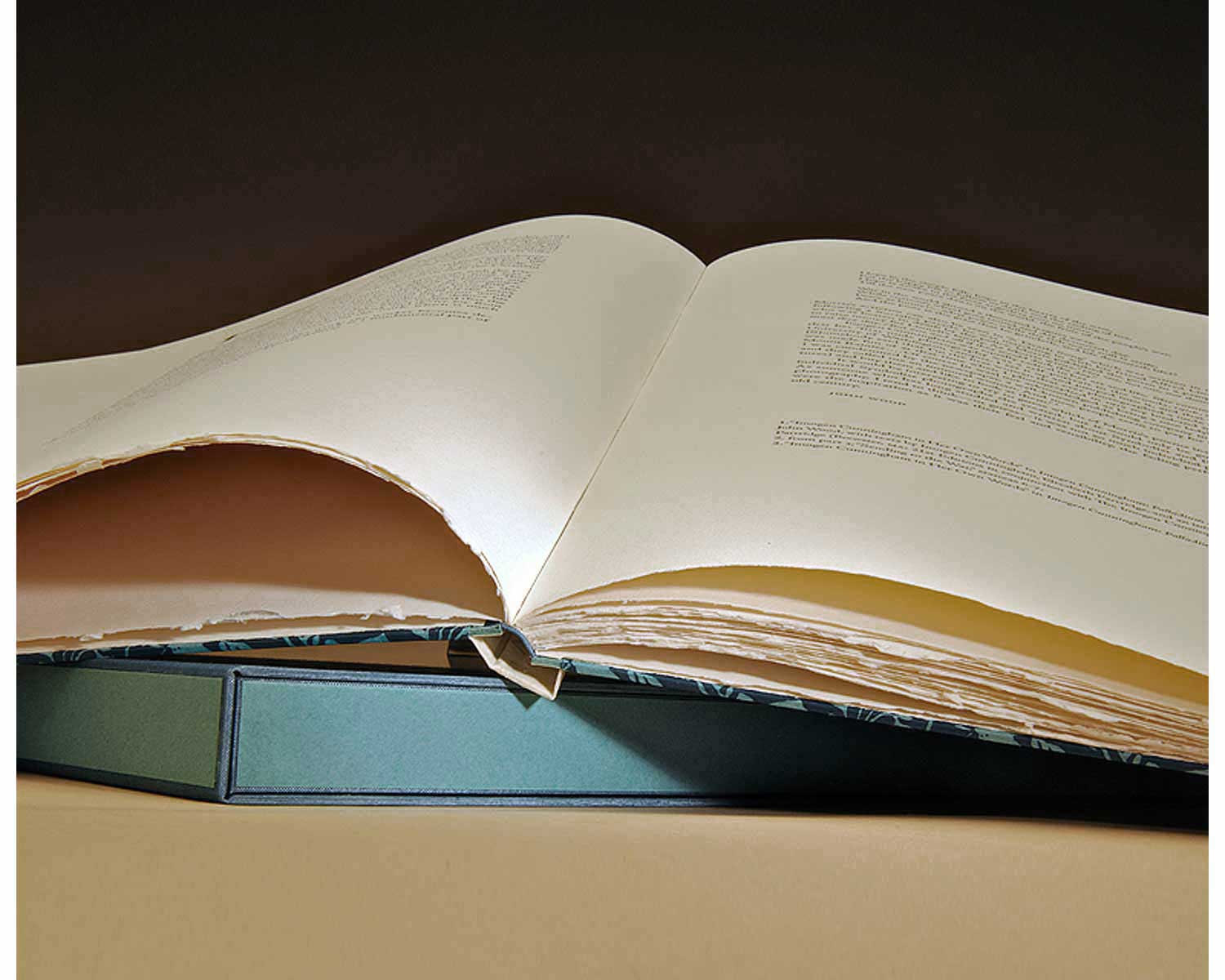
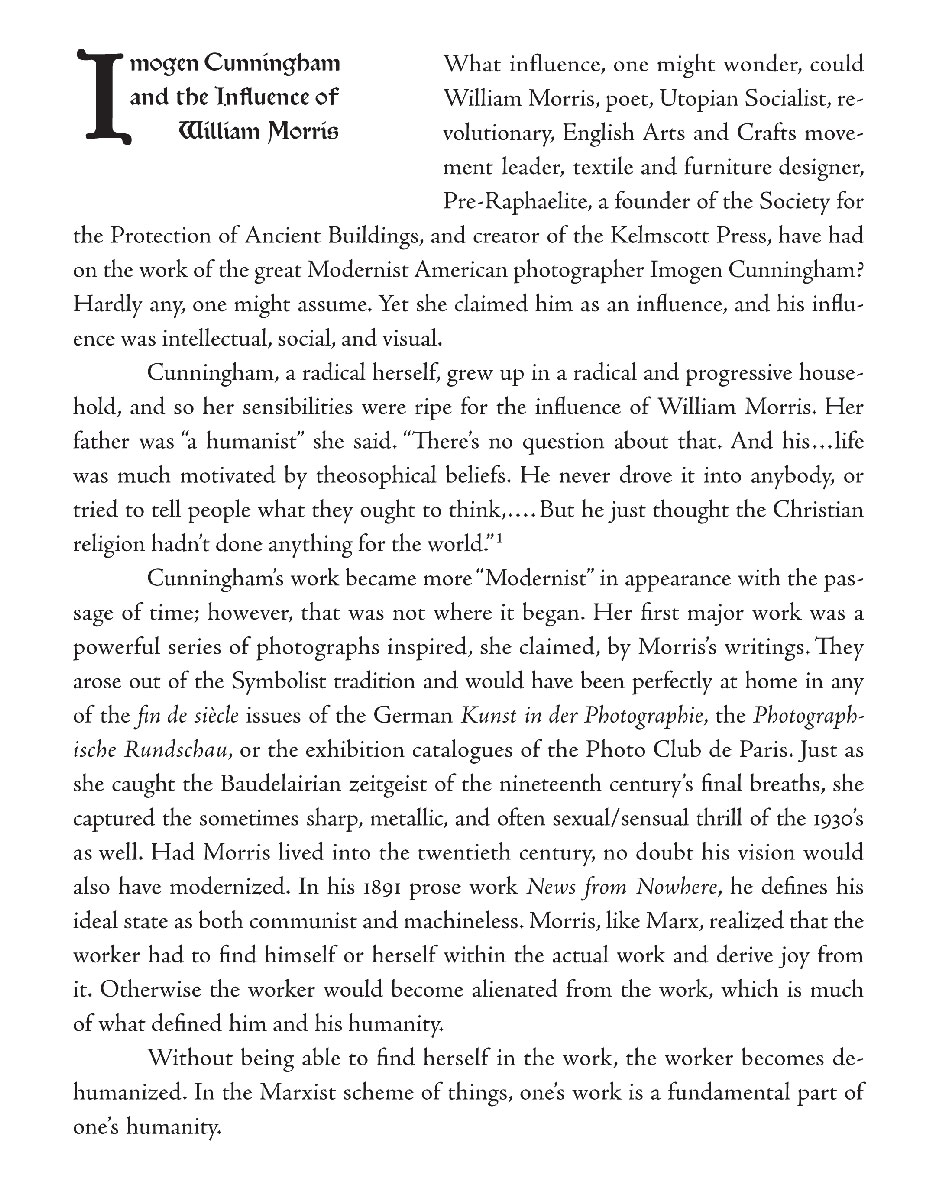

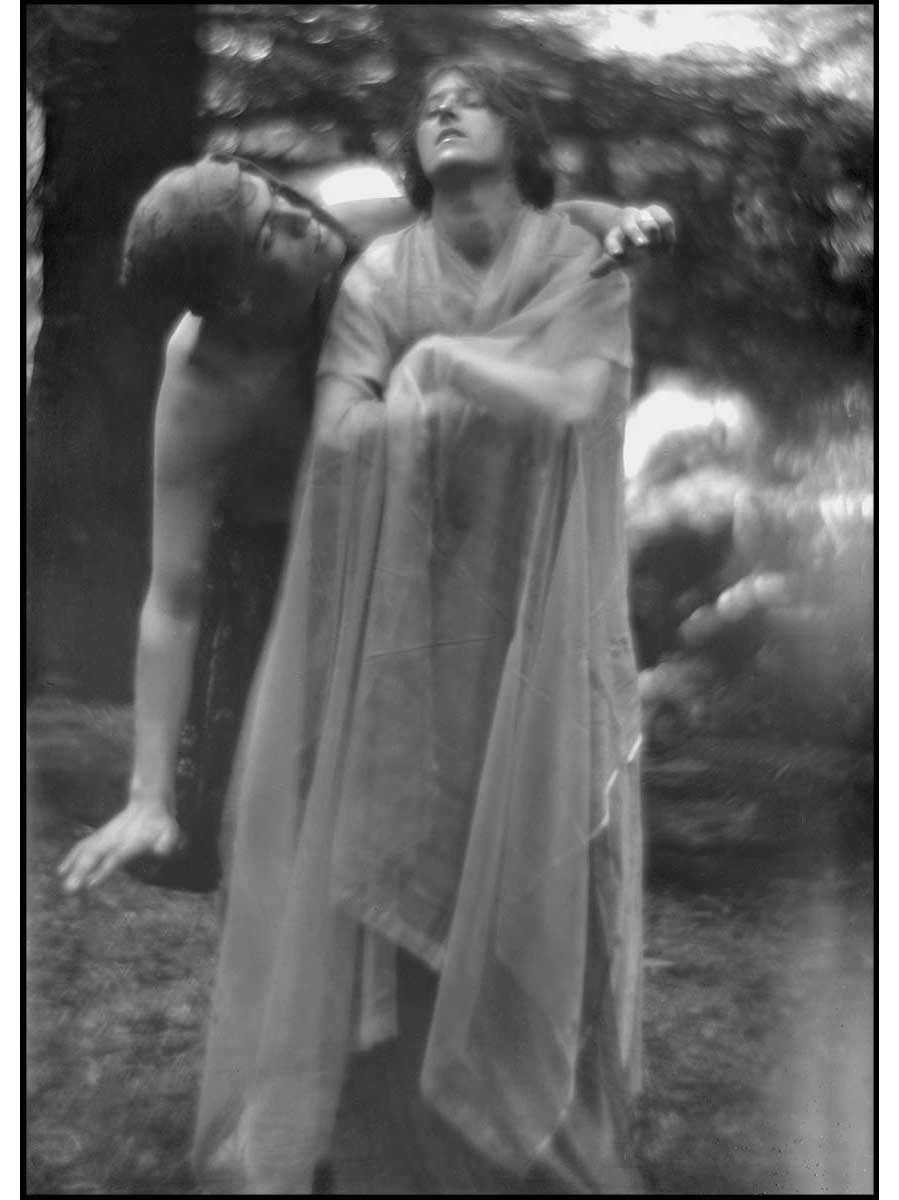
Imogen Cunningham: Symbolist
Poetry and Prose by William Morris
Introduction by John Wood
Printed letterpress on handmade Twinrocker paper
3 loose Imogen Cunningham Estate prints printed in gum arabic:
The Dream, 1910; Veiled Woman, 1910; and The Wood Beyond the World, 1910.
9 bound Imogen Cunningham Estate Prints, including 1 frontispiece nude self-portrait,
of Cunningham's early Symbolist work from 1905-1915.
Edition: 45 copies
18 x 14 inches
Handcrafted in New England
What influence, one might wonder, could William Morris, poet, Utopian Socialist, revolutionary, English Arts and Crafts movement leader, textile and furniture designer, Pre-Raphaelite, a founder of the Society for the Protection of Ancient Buildings, and creator of the Kelmscott Press, have had on the work of the great Modernist American photographer Imogen Cunningham? Hardly any, one might assume. Yet she claimed him as an influence, and his influence was intellectual, social, and visual.
...Without being able to find herself in the work, the worker becomes dehumanized. In the Marxist scheme of things, one’s work is a fundamental part of one’s humanity. In “The Pilgrims of Hope” Morris writes:
Hope in the simple folk, hope in the hearts of the wise,
For the happy life to follow, or death and the ending of lies,
Hope is awake in the faces angerless now no more,
Till the new peace dawn on the world, the fruit of the people’s war.
War in the world abroad a thousand leagues away,
While custom’s wheel goes round and day devoureth day.
Peace at home!—what peace, while the rich man’s mill is strife,
And the poor is the grist that he grindeth, and life devoureth life?
...It would be interesting to try to guess which of Morris’s poems inspired the individual Symbolist photographs she created, but it would only be guess-work. As someone who has long studied and written about Symbolist and Pictorialist photography, I tend to think—or guess—it was not so much individual poems that were the inspiration as it was their feel and sensibility, the fading perfumes of an old century.
from the introduction by John Wood


